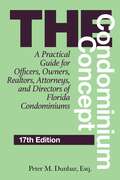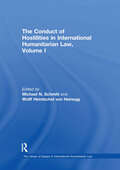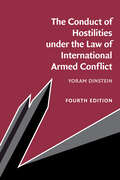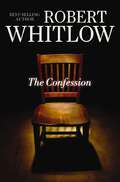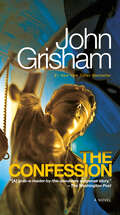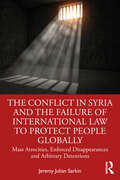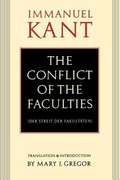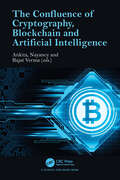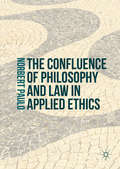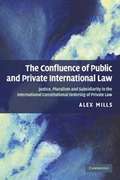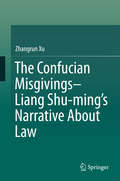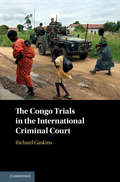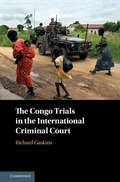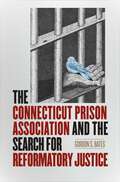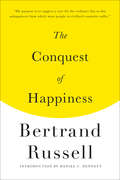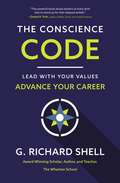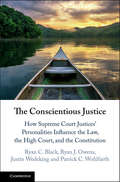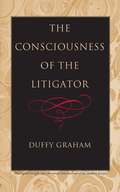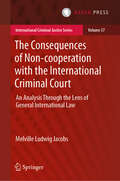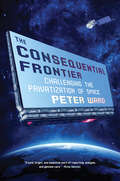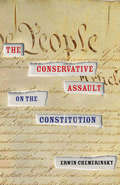- Table View
- List View
The Condominium Concept: A Practical Guide for Officers, Owners, Realtors, Attorneys, and Directors of Florida Condominiums
by Peter M DunbarThe purpose of The Condominium Concept is to provide a practical guide for officers and board members of residential condominiums. It is not designed as a legal treatise for lawyers. The manual will, however, refer frequently to provisions of the law helping its user understand the requirements that the law imposes on the operation of condominiums in Florida. Those familiar with prior editions of The Condominium Concept will find new references to the law presented in the footnotes of this edition, and the references include key decisions from Florida courts.Condominiums are &“creatures of statute.&” The Florida Condominium Act governs their creation and their ongoing activities. The Act also addresses the rights of unit owners and the responsibilities of those who govern the condominium on their behalf. This edition of the Concept includes the changes to the Florida Statutes through the 2023 legislative session.There are forms and sample documents to help association officials comply with the procedural requirements regulating their duties. There is a shorthand guide to the rules of parliamentary procedure and forms to assist in conducting association meetings. Finally, there are frequent references to sections and paragraphs of the Florida Statutes (F.S.) and the Florida Administrative Code (F.A.C.) to give foundation to the commentary and to direct the reader to other source material if there is need for more information
The Conduct of Hostilities in International Humanitarian Law, Volume I
by Wolff Heintschel HeineggThis volume is the first of two addressing the legal regime governing the use of force during armed conflicts. Traditionally labeled 'Hague Law', today the norms it examines are commonly referred to as 'conduct of hostilities rules'. At the heart of this body of law is the principle of distinction, which requires that civilians and civilian objects be distinguished from combatants and military objectives during military operations. It is the purest expression of the foundational balance between humanitarian considerations and military necessity that has underpinned international humanitarian law since its inception. The essays selected consider the theoretical and practical difficulties of maintaining the balance in the face of evolving means and methods of warfare and competing perspectives as to how it is best achieved. Also addressed is the law governing warfare at sea and in the air. Essays focusing on the former examine early norms and analyze their continuing relevance to today's maritime operations whilst those exploring the latter inject much needed clarity into the subject, an essential task in light of the centrality of aerial warfare in modern combat operations.
The Conduct of Hostilities under the Law of International Armed Conflict
by Yoram DinsteinWritten by the leading commentator on the subject, this is the seminal textbook on the law of international armed conflict. Focusing on recent issues arising in the course of hostilities between States, it explores the dividing line between lawful and unlawful combatants, the meaning of war crimes and command responsibility, the range of prohibited weapons, the distinction between combatants and civilians, the parameters of targeting and proportionality, the loss of protection from attack (including 'direct participation in hostilities') and special protection (granted, pre-eminently, to the environment and to cultural property). In a completely revised and updated text, the author expertly covers the key principles and includes important new issues, including the use of autonomous weapons and the complexities of urban warfare. The subtleties and nuances of the international law of armed conflict are made accessible to the student and practitioner alike, whilst retaining the academic rigour of previous editions.
The Conduct of Hostilities under the Law of International Armed Conflict
by Yoram DinsteinThe book serves as a companion to three other volumes published by Cambridge University Press, dealing respectively with the jus ad bellum, the law of belligerent occupation, and non-international armed conflicts. It is devoted to the core of the jus in bello - that is, the conduct of hostilities on land, at sea and in the air in inter-State armed conflicts - analyzed against the background of customary international law and treaties in force. The book deals with both means and methods of modern warfare. It addresses issues of general non-combatant protection, the principle of proportionality in collateral damage to civilians, and special protection, especially of the environment and cultural property. It also considers the relevant dimensions of international criminal law and deals with controversial matters such as unlawful combatancy, direct participation of civilians in hostilities and the use of 'human shields'. Case law and legal literature are cited throughout.
The Confession
by John GrishamFor every innocent man sent to prison, there is a guilty one left on the outside. He doesn't understand how the police and prosecutors got the wrong man, and he certainly doesn't care. He just can't believe his good luck. Time passes and he realizes that the mistake will not be corrected: the authorities believe in their case and are determined to get a conviction. He may even watch the trial of the person wrongly accused of his crime. He is relieved when the verdict is guilty. He laughs when the police and prosecutors congratulate themselves. He is content to allow an innocent person to go to prison, to serve hard time, even to be executed.Travis Boyette is such a man. In 1998, in the small East Texas city of Sloan, he abducted, raped, and strangled a popular high school cheerleader. He buried her body so that it would never be found, then watched in amazement as police and prosecutors arrested and convicted Donté Drumm, a local football star, and marched him off to death row.Now nine years have passed. Travis has just been paroled in Kansas for a different crime; Donté is four days away from his execution. Travis suffers from an inoperable brain tumor. For the first time in his miserable life, he decides to do what's right and confess.But how can a guilty man convince lawyers, judges, and politicians that they're about to execute an innocent man?(P)2010 Random House, LLC
The Confession
by Robert Whitlow"Fans of JohnGrisham will find much to like here." --Library JournalConfession is goodfor the soul, but it could mean death to an ambitious young lawyer.Assistant DA Holt Douglas has made a career of gettingconfessions from criminals. With a confession in hand, he knows a guilty pleais soon to follow. In the midst of professional success, Holt is haunted by asecret--a lie he buried in the grave of his best friend. Holt's crime is hidden fromall eyes--family, friends, police, and his soon-to-be fiancé.But the truth has a way of coming back to life.With obsessive prosecutorial zeal, Holt reopens a cold caseinvolving the death of the town's wealthiest citizen. The man's death was ruleda suicide, but Holt suspects murder. Facing fierce opposition, he is determinedto expose the killer. Holt slowly begins to unravel the facts.And comes face-to-face with his own guilty conscience.With his job, his relationship with the woman he loves, andhis future at risk, Holt skirts the boundary between truth and lies, confessionand hypocrisy, redemption and ruin. Can he survive longenough to finally make the right choice?"Readers will find plenty to love about this suspenseful novel as theywatch its appealing main character juggle personal, professional, and spiritualcrisis with a combination of vulnerability and strength." --CBA Retailers and Resources, regarding The Living Room
The Confession: A Novel (Playaway Adult Fiction Ser.)
by John Grisham#1 NEW YORK TIMES BESTSELLER • An innocent man is about to be executed. Only a guilty man can save him. In 1998, in the small East Texas city of Sloan, Travis Boyette abducted, raped, and strangled a popular high school cheerleader. He buried her body so that it would never be found, then watched in amazement as police and prosecutors arrested and convicted Donté Drumm, a local football star, and marched him off to death row. Now nine years have passed. Travis has just been paroled in Kansas for a different crime; Donté is four days away from his execution. Travis suffers from an inoperable brain tumor. For the first time in his miserable life, he decides to do what&’s right and confess. But how can a guilty man convince lawyers, judges, and politicians that they&’re about to execute an innocent man?Don&’t miss John Grisham&’s new book, THE EXCHANGE: AFTER THE FIRM!
The Conflict in Syria and the Failure of International Law to Protect People Globally: Mass Atrocities, Enforced Disappearances and Arbitrary Detentions
by Jeremy Julian SarkinThis book explores, through the lens of the conflict in Syria, why international law and the United Nations have failed to halt conflict and massive human rights violations in many places around the world which has allowed tens of millions of people to be killed and hundreds of millions more to be harmed. The work presents a critical socio-legal analysis of the failures of international law and the United Nations (UN) to deal with mass atrocities and conflict. It argues that international law, in the way it is set up and operates, falls short in dealing with these issues in many respects. The argument is that international law is state-centred rather than victim-friendly, is, to some extent, outdated, is vague and often difficult to understand and, therefore, at times, hard to apply. While various accountability processes have come to the fore recently, processes do not exist to assist individual victims while the conflict occurs or the abuses are being perpetrated. The book focuses on the problems of international law and the UN and, in the context of the many enforced disappearances and arbitrary detentions in Syria, why nothing has been done to deal with a rogue state that has regularly violated international law. It examines why the responsibility to protect (R2P) has not been applied and why it ought to be used, generally, and in Syria. It uses the Syrian context to evaluate the weaknesses of the system and why reform is needed. It examines the UN institutional mechanisms, the role they play and why a civilian protection system is needed. It examines what mechanism ought to be set up to deal with the possible one million people who have been disappeared and detained in Syria. The book will be a valuable resource for students, academics and policy-makers working in the areas of public international law, international human rights law, political science and peace and security studies.
The Conflict of the Faculties
by Immanuel Kant Mary J. Gregor<p>It is in the interest of the totalitarian state that subjects not think for themselves, much less confer about their thinking. Writing under the hostile watch of the Prussian censorship, Immanuel Kant dared to argue the need for open argument, in the university if nowhere else. In this heroic criticism of repression, first published in 1798, he anticipated the crises that endanger the free expression of ideas in the name of national policy. <p>Composed of three sections written at different times, <i>The Conflict of the Faculties</i> dwells on the eternal combat between the "lower" faculty of philosophy, which is answerable only to individual reason, and the faculties of theology, law, and medicine, which get "higher" precedence in the world of affairs and whose teachings and practices are of interest to the government. Kant makes clear, for example, the close alliance between the theological faculty and the government that sanctions its teachings and can resort to force and censorship. All the more vital and precious, then, the faculty of philosophy, which encourages independent thought before action. The first section, "The Conflict of the Philosophy Faculty with the Theology Faculty," is essentially a vindication of the right of the philosophical faculty to freedom of expression. In the other sections the philosopher takes a long and penetrating look at medicine and law, the one preserving the physical "temple" and the other regulating its actions.</p>
The Confluence of Cryptography, Blockchain and Artificial Intelligence
by Rajat Verma Nayancy AnkitaWith blockchain underpinning cryptocurrencies and improving IoT security, this book uncovers the evolution of blockchain (1.0 to 4.0) and its applications. It also introduces AI, discussing its development, paradigms, and industry-wide impact. The book explores the integration of cryptography, blockchain, and artificial intelligence (AI) in areas such as big data, bioinformatics, IoT, 5G, and Industry 4.0. It highlights how these technologies drive the digital revolution, enabling multi-agent systems, autonomous models, and enhanced security.
The Confluence of Philosophy and Law in Applied Ethics
by Norbert PauloThe law serves a function that is not often taken seriously enough by ethicists, namely practicability. A consequence of practicability is that law requires elaborated and explicit methodologies that determine how to do things with norms. This consequence forms the core idea behind this book, which employs methods from legal theory to inform and examine debates on methodology in applied ethics, particularly bioethics. It is argued that almost all legal methods have counterparts in applied ethics, which indicates that much can be gained from comparative study of the two. The author first outlines methods as used in legal theory, focusing on deductive reasoning with statutes as well as analogical reasoning with precedent cases. He then examines three representative kinds of contemporary ethical theories, Beauchamp and Childress's principlism, Jonsen and Toulmin's casuistry, and two versions of consequentialism--Singer's preference utilitarianism and Hooker's rule-consequentialism--with regards to their methods. These examinations lead to the Morisprudence Model for methods in applied ethics.
The Confluence of Public and Private International Law
by Alex MillsA sharp distinction is usually drawn between public international law, concerned with the rights and obligations of states with respect to other states and individuals, and private international law, concerned with issues of jurisdiction, applicable law and the recognition and enforcement of foreign judgments in international private law disputes before national courts. Through the adoption of an international systemic perspective, Dr Alex Mills challenges this distinction by exploring the ways in which norms of public international law shape and are given effect through private international law. Based on an analysis of the history of private international law, its role in US, EU, Australian and Canadian federal constitutional law, and its relationship with international constitutional law, he rejects its conventional characterisation as purely national law. He argues instead that private international law effects an international ordering of regulatory authority in private law, structured by international principles of justice, pluralism and subsidiarity.
The Confucian Misgivings--Liang Shu-ming’s Narrative About Law
by Zhangrun XuThe major intellectual interest throughout this book is to offer a study on China's legal legacy, through Liang Shu-ming's eyes. The book follows the formula of the parallel between Life and Mind (人生与人心), Physis and Nomos, and compares Liang Shu-ming's narrative with his own practical orientation and with the theories of other interlocutors. The book puts Liang Shu-ming into the social context of modern Chinese history, in particular, the context of the unprecedented crisis of meaning in the legal realm and the collapse of a transcendental source for Chinese cultural identity in the light of modernity. The evaluation provided by this narrative could be helpful in clarifying the deep structures and significance of the present Chinese legal system through historically exploring Liang Shu-ming's misgivings. The book is intended for academics of legal, history and cultural studies. The book is unique in that it is the first book to explore New Confucian's considerations on reconstruction of Chinese legal system in the modern era. It presents a comprehensive systematical comparison of Liang Shu-ming's narrative about constitutional government in China against other schools of thought.
The Congo Trials in the International Criminal Court
by Richard GaskinsThis is the first in-depth study of the first three ICC trials: an engaging, accessible text meant for specialists and students, for legal advocates and a wide range of professionals concerned with diverse cultures, human rights, and restorative justice. It introduces international justice and courtroom trials in practical terms, offering a balanced view on persistent tensions and controversies. Separate chapters analyze the working realities of central African armed conflicts, finding reasons for their surprising resistance to ICC legal formulas. The book dissects the Court's structural dynamics, which were designed to steer an elusive middle course between high moral ideals and hard political realities. Detailed chapters provide vivid accounts of courtroom encounters with four Congolese suspects. The mixed record of convictions, acquittals, dissents, and appeals, resulting from these trials, provides a map of distinct fault-lines within the ICC legal code, and suggests a rocky path ahead for the Court's next ventures.
The Congo Trials in the International Criminal Court
by Richard GaskinsThis is the first in-depth study of the first three ICC trials: an engaging, accessible text meant for specialists and students, for legal advocates and a wide range of professionals concerned with diverse cultures, human rights, and restorative justice. Now with an updated postscript for the paperback edition, it offers a balanced view on persistent tensions and controversies. Separate chapters analyze the working realities of central African armed conflicts, finding reasons for their surprising resistance to ICC legal formulas. The book dissects the Court's structural dynamics, which were designed to steer an elusive middle course between high moral ideals and hard political realities. Detailed chapters provide vivid accounts of courtroom encounters with four Congolese suspects. The mixed record of convictions, acquittals, dissents, and appeals, resulting from these trials, provides a map of distinct fault-lines within the ICC legal code, and suggests a rocky path ahead for the Court's next ventures.
The Connected Self
by Heather WiddowsCurrently, the ethics infrastructure - from medical and scientific training to the scrutiny of ethics committees - focuses on trying to reform informed consent to do a job which it is simply not capable of doing. Consent, or choice, is not an effective ethical tool in public ethics and is particularly problematic in the governance of genetics. Heather Widdows suggests using alternative and additional ethical tools and argues that if individuals are to flourish it is necessary to recognise and respect communal and public goods as well as individual goods. To do this she suggests a two-step process - the 'ethical toolbox'. First the harms and goods of the particular situation are assessed and then appropriate practices are put in place to protect goods and prevent harms. This debate speaks to core concerns of contemporary public ethics and suggests a means to identify and prioritise public and common goods.
The Connecticut Prison Association and the Search for Reformatory Justice (The Driftless Connecticut Series)
by Gordon S. BatesHow a groundbreaking advocacy organization has helped shape Connecticut's criminal justice system since 1875 The Connecticut Prison Association and the Search for Reformatory Justice looks at the role the Connecticut Prison Association played in the formation of the state's criminal justice system. Now organized under the name Community Partners in Action (CPA), the Connecticut Prison Association was formed to ameliorate the conditions of criminal defendants and people in prison, improve the discipline and administration of local jails and state prisons, and furnish assistance and encouragement to people returning to their communities after incarceration. The organization took a leading role in prison reform in the state and was instrumental in a number of criminal justice innovations. Gordon S. Bates, former Connecticut Prison Association volunteer and executive director (1980 – 1998), offers a detailed history of this and similar voluntary associations and their role in fostering a rehabilitative, rather than a retributive, approach to criminal justice. First convened in 1875 as the Friends of Partners of Prisoners Society, then evolving into the Connecticut Prison Association and CPA, the organization has consistently advocated for a humane, rehabilitative approach to prisoner treatment.
The Conquest of Happiness
by Bertrand Russell Daniel C. Dennett"Should be read by every parent, teacher, minister, and Congressman in the land."--The Atlantic In The Conquest of Happiness, first published by Liveright in 1930, iconoclastic philosopher Bertrand Russell attempted to diagnose the myriad causes of unhappiness in modern life and chart a path out of the seemingly inescapable malaise so prevalent even in safe and prosperous Western societies. More than eighty years later, Russell's wisdom remains as true as it was on its initial release. Eschewing guilt-based morality, Russell lays out a rationalist prescription for living a happy life, including the importance of cultivating interests outside oneself and the dangers of passive pleasure. In this new edition, best-selling philosopher Daniel C. Dennett reintroduces Russell to a new generation, stating that Conquest is both "a fascinating time capsule" and "a prototype of the flood of self-help books that have more recently been published, few of them as well worth reading today as Russell's little book."
The Conscience Code: Lead with Your Values. Advance Your Career.
by G. Richard ShellThe essential guide to standing up for your values at work. Protect your integrity by committing to The Conscience Code.A fast-track colleague elbowing their way up the corporate ladder in your organization is faking their sales reports. Your entrepreneur boss asks you to lie to would-be investors. The team leader is a serial sexual harasser. What should you do? Nobody prepared you for this part of professional life. You face a gut-wrenching choice: &“go along to get along&” or risk your job by speaking up for what you know is right.At the Wharton School of Business, MBA students have shared all these stories, and many more, with award-winning Professor G. Richard Shell. They want to stay true to themselves but fear the consequences of speaking up—for their families, office relationships and, ultimately, their careers. They are not alone. Surveys show that more than 40% of employees report seeing ethical misconduct at work, and most fail to report it—killing office morale and allowing the wrong people to set the example.Shell created The Conscience Code to point to a better path: recognize that these conflicts are coming, learn to spot them, then follow a research-based, step-by-step approach for resolving them skillfully. By committing to the Code, you can replace regret with long-term career success as a leader of conscience.The Conscience Code:Solves a crucial problem faced by professionals everywhere: What should they do when they are asked to compromise their core values to achieve organizational goals?Teaches readers to recognize and overcome the five organizational forces that push people toward actions they later regret.Lays out a systematic, values-to-action process that people at all levels can follow to maintain their integrity while achieving true success in their lives and careers.Driven by dramatic, real-world examples from Shell&’s classroom, today&’s headlines, and classic cases of corporate wrongdoing, The Conscience Code shows how to create value-based workplaces where everyone can thrive.
The Conscientious Justice: How Supreme Court Justices' Personalities Influence the Law, the High Court, and the Constitution
by Ryan C. Black Ryan J. Owens Justin Wedeking Patrick C. WohlfarthUnited States Supreme Court justices make decisions that have a profound impact on American society. Empirical legal scholars have portrayed justices as either single-minded or strategic seekers of policy, and there is little room in these theories for things like law, reputation, or personality. This book offers a fresh perspective that will jar Supreme Court scholarship out of complacency. It argues that justices' personalities influence their behavior, which in turn influences legal development and the United States Constitution. This impressive group of authors exhaustively examine every part of the Court's decision-making process, and focus on the trait of conscientiousness and how it influences justices over nine different empirical contexts, from agenda setting to writing the Court's opinions. The Conscientious Justice is an important and comprehensive account of judging that restructures existing approaches to analyzing the High Court.
The Consciousness of the Litigator
by Duffy GrahamThe Consciousness of the Litigator investigates the role of the lawyer in modern American political and social life and in the judicial process, and plumbs lawyers' perceptions of themselves, their work, and, especially, their sense of right and wrong. In so doing, the book sheds light on the unique and little-examined subject of the moral mind of the litigator, whose work extends to all corners of society and whose primary expertise---making legal arguments---is the fundamental skill of all lawyers. The Consciousness of the Litigator stands with Michael Kelly's Lives of Lawyers as a must-read for the many law students, scholars, and practicing litigators who struggle to balance ethical questions with the dictates of their highly commercialized profession.
The Consequence of Choice
by Natalie SammonsIn a world where motherhood can be a crime, a woman risks everything to defy those in power . . . Ten years after the world took drastic action to rein in overpopulation, Elspeth suspects she is pregnant—illegally—after a brief, alcohol-fuelled fling with Nick. Even procuring a test to confirm it would be risky. As Elspeth tries desperately to keep her condition hidden from the authorities, a female detective becomes convinced something illicit is going on—and tries to resuscitate her own troubled career by pursuing this lawbreaker. But behind the scenes, two people are determined to come to Elspeth&’s aid. One is someone close to her who has a secret. The other is someone she would never have expected. Now, as danger closes in, how far will they go to keep Elspeth—and her unborn baby—safe?
The Consequences of Non-cooperation with the International Criminal Court: An Analysis Through the Lens of General International Law (International Criminal Justice Series #37)
by Melville Ludwig JacobsThis book aims to provide a comprehensive analysis of how the International Criminal Court can be better equipped to handle instances of non-cooperation with its requests by States, specifically State Parties to the Rome Statute that have a concrete obligation to cooperate with the Court. The book suggests that non-cooperation is not handled in an effective manner at any stage of non-cooperation proceedings. This highlights the need for there to be more effective responses and remedies for handling the failure to cooperate, from the initial decision on non-cooperation by the ICC Pre-Trial Chamber's to the follow-up mechanisms developed by the institutional bodies tasked with addressing non-cooperation. Existing literature on non-cooperation appears to strictly look to the black letter of the Rome Statute to address and remedy the gaps in the Court's handling of non-cooperation matters. This book, however, intends to conduct a broad study, and will therefore look beyond the Rome Statute to search for effective remedies for responding to instances of non-cooperation, through relevant international peace and security. Specific focus will be placed on the Responsibility to Protect and the ILC's Articles on the Responsibility of States for Internationally Wrongful Acts. Responses to non-cooperation will also be analysed through its potential relationship with peremptory norms of general international law (jus cogens). This volume in the ICJ Series is especially relevant considering recent developments in international criminal law, including the continued inability of the ICC to effectively address non-cooperation in high-profile cases. Specifically tailored for legal academics, practitioners, and policymakers, this book seeks to bridge theoretical analyses with practical solutions, making it an important tool for those invested in the future of international criminal justice. Melville Jacobs is a Postdoctoral Research Fellow at the Palacký University Olomouc, Centre for International Humanitarian and Operational Law.
The Consequential Frontier: Challenging the Privatization of Space
by Peter Ward"A lucid, bright and essential work of reporting, analysis and genuine care. Peter Ward has given us a new way to think about private endeavors in space. Superb."—Rivka Galchen, author of Little LaborsThis in-depth work of reportage dares to ask what’s at stake in privatizing outer spaceEarth is in trouble—so dramatically that we’re now scrambling to explore space for valuable resources and a home for permanent colonization. With the era of NASA’s dominance now behind us, the private sector is winning this new space race. But if humans and their private wealth have made such a mess of Earth, who can say we won’t do the same in space?In The Consequential Frontier, business and technology journalist Peter Ward is raising this vital question before it’s too late. Interviewing tech CEOs, inventors, scientists, lobbyists, politicians, and future civilian astronauts, Ward sheds light on a whole industry beyond headline-grabbing rocket billionaires like Bezos and Musk, and introduces the new generation of activists trying to keep it from rushing recklessly into the cosmos. With optimism for what humans might accomplish in space if we could leave our tendency toward deregulation, inequality, and environmental destruction behind, Ward shows just how much cooperation it will take to protect our universal resource and how beneficial it could be for all of us.
The Conservative Assault on the Constitution
by Erwin ChemerinskyOver the last few decades, the Supreme Court and the federal appellate courts have undergone a dramatic shift to the right, the result of a determined effort by right-wing lawmakers and presidents to reinterpret the Constitution by reshaping the judiciary. Conservative activist justices have narrowed the scope of the Constitution, denying its protections to millions of Americans, exactly as the lawmakers who appointed and confirmed these jurists intended. Basic long-standing principles of constitutional law have been overturned by the Rehnquist and Roberts courts. As distinguished law professor and constitutional expert Erwin Chemerinsky demonstrates in this invaluable book, these changes affect the lives of every American. As a result of political pressure from conservatives and a series of Supreme Court decisions, our public schools are increasingly separate and unequal, to the great disadvantage of poor and minority students. Right-wing politicians and justices are dismantling the wall separating church and state, allowing ever greater government support for religion. With the blessing of the Supreme Court, absurdly harsh sentences are being handed down to criminal defendants, such as life sentences for shoplifting and other petty offenses. Even in death penalty cases, defendants are being denied the right to competent counsel at trial, and as a result innocent people have been convicted and sentenced to death. Right-wing politicians complain that government is too big and intrusive while at the same time they are only too happy to insert the government into the most intimate aspects of the private lives of citizens when doing so conforms to conservative morality. Conservative activist judges say that the Constitution gives people an inherent right to own firearms but not to make their own medical decisions. In some states it is easier to buy an assault rifle than to obtain an abortion. Nowhere has the conservative assault on the Constitution been more visible or more successful than in redefining the role of the president. From Richard Nixon to George W. Bush, conservatives have sought to significantly increase presidential power. The result in recent years has been unprecedented abuses, including indefinite detentions, illegal surveillance, and torture of innocent people. Finally, access to the courts is being restricted by new rulings that deny legal protections to ordinary Americans. Fewer lawsuits alleging discrimination in employment are heard; fewer people are able to sue corporations or governments for injuries they have suffered; and even when these cases do go to trial, new restrictions limit damages that plaintiffs can collect. The first step in reclaiming the protections of the Constitution, says Chemerinsky, is to recognize that right-wing justices are imposing their personal prejudices, not making neutral decisions about the scope of the Constitution, as they claim, or following the "original meaning" of the Constitution. Only then do we stand a chance of reclaiming our constitutional liberties from a rigid ideological campaign that has transformed our courts and our laws. Only then can we return to a constitutional law that advances freedom and equality.
